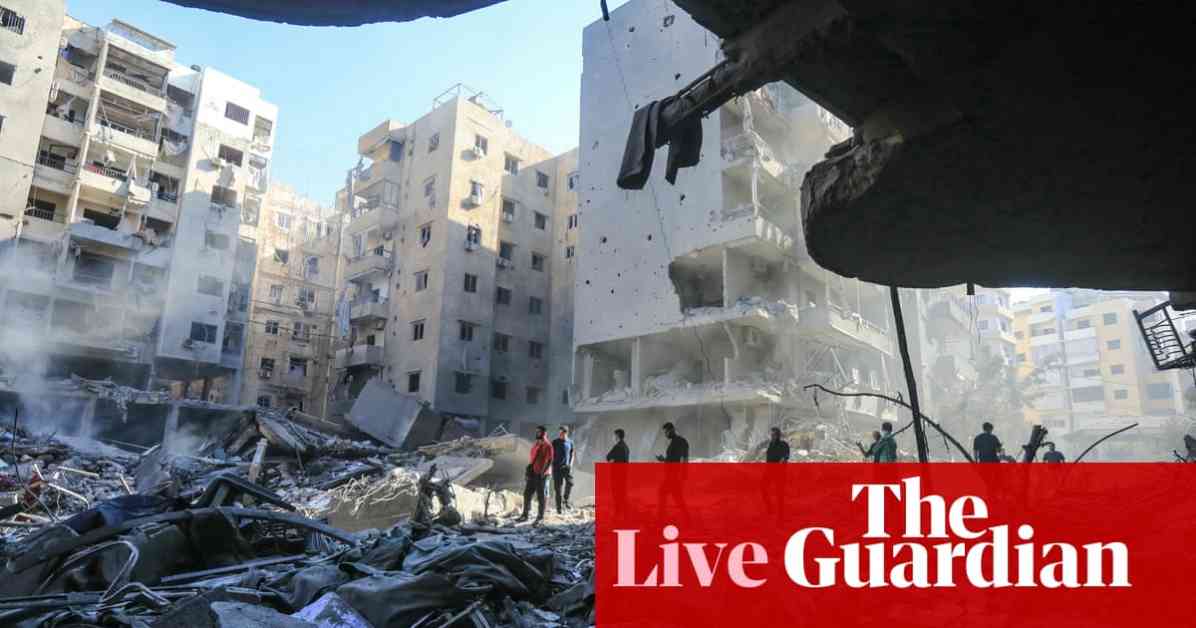Israel has continued its attacks on Lebanon, with the Israeli military claiming to have hit dozens of Hezbollah targets in the past hours. This comes after the Lebanese militant group confirmed its leader Hassan Nasrallah was killed in an Israeli strike on Beirut. The Israeli military announced on X that they had killed another senior Hezbollah figure, Nabil Kaouk, who was the deputy head of Hezbollah’s central council. Kaouk was reportedly being considered as a potential successor to Nasrallah before his untimely death.
Nabil Kaouk was a veteran member of Hezbollah dating back to the 1980s and had previously served as Hezbollah’s military commander in southern Lebanon. The US had imposed sanctions against him in 2020. A source close to Hezbollah confirmed to AFP that Kaouk was indeed killed in a strike on Saturday and identified him as a member of Hezbollah’s central council responsible for security within the group.
The choices for who will now lead Hezbollah are narrowing, with analysts suggesting that Hashim Safieddine, the head of Hezbollah’s executive council, is the favored pick. Naeem Qassem, the deputy secretary-general of the organization, is also reportedly in the running. Kaouk’s death is a significant blow to Hezbollah’s leadership, already reeling from a relentless Israeli assassination campaign.
Lebanon has been in turmoil following the assassination of Nasrallah, with the Lebanese army making a plea for national unity to prevent further escalation of tensions. The army urged citizens to preserve national unity and avoid actions that could affect civil peace at this critical and delicate stage. Prime Minister Najib Mikati is set to chair a meeting of the government emergency committee to address the ongoing crisis in the country.
The UN World Food Programme (WFP) has launched an emergency operation to provide food for up to 1 million people affected by the conflict in Lebanon. The escalation of the conflict necessitated urgent humanitarian response, with the WFP dispatching food, hot meals, “ready-to-eat rations,” and cash for civilians, including those displaced by Israeli attacks and seeking refuge in shelters.
In response to the escalating tensions in the region, China has expressed deep concern and called on all parties, particularly Israel, to take immediate steps to de-escalate the situation. China has been actively involved in various crises, hosting talks between Palestinian factions and brokering deals between regional powers to maintain peace and stability.
The conflict between Hezbollah and Israel continued through the night and early morning, with Israeli warplanes conducting airstrikes across south Lebanon and the Bekaa valley. Hezbollah retaliated by launching a rocket salvo at the “Ofik base” using their medium-range Fadi-1 rockets. The situation remains volatile, with casualties reported on both sides.
The ongoing violence has taken a heavy toll on Lebanon, with more than 1,000 people killed and over 6,000 wounded in Israeli attacks over the past two weeks. Approximately one million Lebanese people have been displaced by the strikes, exacerbating the humanitarian crisis in the country. The international community is urged to provide support and resources to address the critical situation in Lebanon.
In conclusion, the conflict in Lebanon continues to escalate, with devastating consequences for the civilian population. The international community must act swiftly to de-escalate tensions and provide humanitarian aid to those affected by the violence. The loss of key figures in Hezbollah and the ongoing Israeli attacks underscore the urgent need for a peaceful resolution to the crisis in the region.












